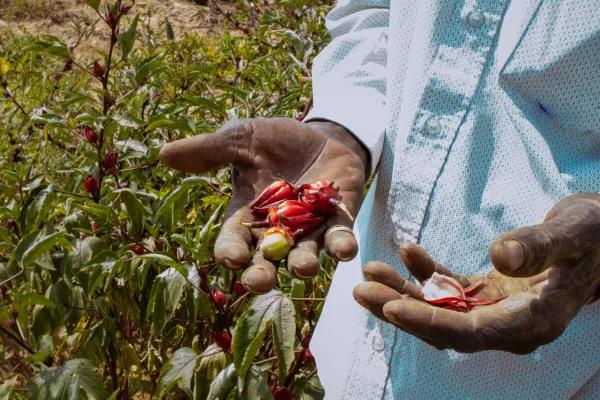‘A wave of truth’: COP30 targets disinformation threat to climate action

Brazil’s President Luiz Inácio Lula da Silva set the tone at the opening session, declaring that the battle for truth has become just as critical as the fight to cut emissions. COP30 must mark “a new defeat for climate denialists,” he said.
On Wednesday, 12 nations – including Brazil, Canada, France, Germany and Spain – signed onto the first-ever Declaration on Information Integrity on Climate Change, pledging to fight back against the flood of false content and protect those on the frontlines of truth: environmental journalists, scientists and researchers.
The declaration, unveiled under the Global Initiative for Information Integrity on Climate Change, calls for concrete steps to dismantle networks of climate lies and shield evidence-based voices from harassment and attacks.
João Brant, Brazil’s Secretary for Digital Policies, said the goal is simple but urgent: to “create a wave of truth.”
The initiative, launched in June, is a partnership between Brazil, the UN Department of Global Communications and UNESCO.
“Disinformation, the harassment of expert voices, polarizing echo chambers, and the demise of independent journalism are eroding trust in what is real. At the same time, powerful interests are weaponizing climate change to stall and sabotage action,” said Charlotte Scaddan, Senior Adviser on Information Integrity at the United Nations.
She warned that climate disinformation goes far beyond denial. “It undermines climate action by attacking researchers and journalists, questioning scientific consensus, and creating false narratives around solutions,” she said. “We’re seeing sophisticated ‘information laundering’ – false claims cycled through multiple platforms to appear credible.”
The UN’s new Global Initiative for Information Integrity on Climate Change aims to turn the tide. Built on three pillars – research funding, evidence gathering, and integration into COP processes – the initiative has already secured a breakthrough: information integrity is now part of the COP Action Agenda for the first time. “We cannot achieve climate action and a liveable future without information integrity,” Ms. Scaddan stressed.
“The coming months will determine whether we can preserve the information environment essential for democratic decision-making and global cooperation.”
Disinformation: a direct threat to COP30
Frederico Assis, COP30’s Special Envoy for Information Integrity, warned that the stakes could not be higher. “Disinformation, driven by obscurantist worldviews, fuels political extremism and puts lives at risk,” he told UN News, adding that there is a real danger of interference in climate negotiations.
“There is broad recognition that disinformation can affect and compromise every part of the COP process – process diplomatic negotiations, the action agenda, or mobilization and summits. All our efforts will be at risk if we fail to tackle disinformation properly, which stems from denialism,” Mr. Assis said.
He flagged the role of algorithms amplifying “conspiratorial and manipulative” content, often using “sophisticated tactics to spread false messages.” His mandate: keep the issue in the public eye and mobilize political, religious and social leaders, civil society and the media to push back.
Cracking the code behind climate lies
For the first time, information integrity has made it onto the official COP agenda – a milestone UNESCO’s Guilherme Canela says is long overdue.
Speaking to UN News, Mr. Canela stressed that the global initiative aims to expose the machinery driving climate disinformation.
“We still know very little about what’s behind this. For example, who funds these posts, and why do they spread faster than other types of content? How does that happen? If we don’t understand these mechanisms, it’s very difficult to design effective strategies to combat this phenomenon. The core of this global initiative is precisely to finance, especially in the Global South, investigative journalism and research projects to uncover what’s really happening,” he said.
The Global Fund for Information Integrity on Climate Change, created under the initiative, has already attracted 447 proposals from nearly 100 countries. Backed by an initial $1 million from Brazil, the fund is supporting its first round of projects – almost two-thirds from developing nations.
Mr. Canela called it “very rewarding” to see the issue “embraced so strongly at COP30.”
Disinformation’s shape-shifting tactics
Maria Clara Moraes, a UN Verified Champion and co-founder of the Marias Verdes platform, knows the battle well. With over half a million TikTok followers, she says the fight against climate disinformation is “completely possible, but also extremely challenging.”
She warns that these campaigns are highly organized and “backed by powerful forces, particularly the fossil fuel industry.” Their narratives, she says, “change their disguise” over time.
“There are several types of disinformation. One of the most powerful is saying that it’s too late – that nothing can be done, or that these events like COP30 don’t make a difference. That’s also disinformation. Saying, ‘This isn’t working, it’s too slow, too complex, too frustrating.’ But yes – it’s important. We must constantly reaffirm the value of multilateralism and the importance of spaces like this one,” she said.
A generation that refuses to give up
Despite the challenges, Ms. Moraes told us that she sees hope in younger generations. By producing content rooted in science and sustainability, she says awareness of the climate emergency is growing fast.
According to her, young people are “a great source of hope and optimism.” She urges everyone to play their part in creating “micro-revolutions” through everyday choices that support climate action and drive systemic change.
UN News is reporting from Belém, bringing you front-row coverage of everything unfolding at COP30.
Source: UN News
 Welcome to the United Nations
Welcome to the United Nations


